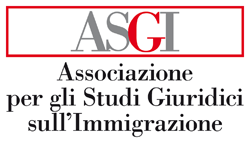Archivio saggi e commenti
La riforma “Orlando-Minniti” a un anno dall’entrata in vigore. I molti dubbi e le poche certezze nelle prassi delle sezioni specializzate
di Maria Cristina Contini
Abstract: Il 17 agosto 2017 è entrato in vigore il d.l. n. 13/2017 che ha per la prima volta istituito sezioni specializzate nelle materie dell’immigrazione, protezione internazionale e libera circolazione dei cittadini dell’Unione europea alle quali ha attribuito competenze in materia di apolidia e cittadinanza. Il decreto ha anche rivoluzionato la procedura di impugnazione del diniego delle domande di protezione internazionale istituendo una procedura camerale speciale caratterizzata dal contraddittorio solo cartaceo, trattazione in udienza pubblica solo eventuale e con eliminazione della possibilità di appellare i decreti decisori emessi dal Tribunale in composizione collegiale, ora impugnabili solo davanti alla Corte di Cassazione. In considerazione della rilevanza, anche in termini numerici, del contenzioso in materia di protezione internazionale il saggio analizza esclusivamente le problematiche interpretative e applicative che le sezioni specializzate hanno affrontato in relazione alla procedura di esame delle domande di asilo, senza occuparsi delle pur interessanti questioni che la giurisprudenza di merito ha affrontato con riferimento alle impugnazioni delle decisioni di trasferimento adottate dalla c.d. “Autorità Dublino”, attribuite dalla riforma alla giurisdizione del giudice ordinario, e nelle controversie in materia di apolidia e cittadinanza. Tra i molti punti critici del nuovo sistema si è scelto di esaminare quelli che quotidianamente ricorrono nella trattazione dei procedimenti ex art. 35 bis introdotto dal d.l. n.13/2017. Il decreto legge non è stato, ad oggi, interamente attuato dal Ministero dell’interno che non ha ancora messo a disposizione i sistemi di videoregistrazione del colloquio svolto durante la fase amministrativa. Viene anche affrontata la dibattuta questione della istituzione, ad opera del d.l. n. 13/2017, di riti diversi per le domande di protezione internazionale e umanitaria, oltre ai problemi interpretativi posti dalla disposizione che regola i criteri in base ai quali il giudice di primo grado deve esaminare la domanda di sospensione del decreto decisorio che ha rigettato la domanda di protezione nel caso in cui sia stata impugnata in Cassazione. A conferma della criticità degli argomenti oggetto del saggio sono state esaminate due recentissime pronunce: la sentenza n. 17717/2018 della Corte di Cassazione sull’obbligo per il giudice di fissare dell’udienza quando non è disponibile la videoregistrazione del colloquio e il rinvio pregiudiziale alla Corte di Giustizia da parte della sezione specializzata di Milano sulla sospensiva “caso per caso” e non automatica degli effetti del diniego di protezione a fronte dell’impugnazione in Cassazione. Le problematiche che vengono illustrate evidenziano come il diritto della protezione internazionale sia una materia complessa e sofisticata destinata a uscire dal ruolo marginale che in questi anni è stato riservato, in generale, al diritto degli stranieri.
Abstract: On 17 August 2017, l.d. n. 13/2017 entered into force. The law-decree established specialized sections on immigration, international protection, and free movement of EU citizens, to which it assigned competence in the field of statelessness and citizenship. The decree also constituted a revolution in terms of the appeal procedure consequent to the refusals of the applications for international protection through the institution of a special chamber procedure which is characterized by paper-only cross-examination, eventual-only public hearing, and elimination of the possibility of appealing the decisional decrees issued by the Court in collegial composition (now it is possible to appeal only before the Court of Cassation). Considered the importance, especially in numerical terms, of the procedure concerning international protection, the essay exclusively analyzes the interpretative and applicative problems that the specialized sections have faced in relation to the procedure for examining asylum applications and does not address the interesting questions that the case-law has dealt with reference to the appeals of the transfer decisions adopted by the so-called “Dublin authorities”, attributed by the reform to the jurisdiction of the ordinary judge, and in disputes relating to statelessness and citizenship. Among the several critical points of the new system, it was decided to examine those that occur daily in the treatment of the procedures pursuant to article 35bis as introduced by the new l.d. n. 13/2017. To date, the law-decree has not yet been fully implemented by the Ministry of Interior: it has not yet made available the video recording systems for the interviews carried out during the administrative phase. It is further addressed the argued issue of the institution by l.d. n. 13/2017 of different rites for applications for international and humanitarian protection, as well as the interpretative problems posed by the provision that regulates the criteria according to which the Court of first instance must examine the request for suspension of the decisional decree that rejected the request for protection in the event in which this has been challenged before the Court of Cassation. To confirm the critical nature of the topics under discussion there are two recent decisions: Sentence 177717/2018 of the Court of Cassation on the obligation for the judge to set a hearing when the videotaping of the interview is not available, and the preliminary reference to the Court of Justice by the specialized Section of Milan on the suspension “case-by-case” and not automatic to the effects of the denial for protection against the Appeal before the Court of Cassation. The illustrated problems highlight how the right to international protection is a complex and sophisticated subject, which is destined to emerge from the marginal role that in recent years has been reserved to the rights of foreigners.
Cerca nel sito
Rubrica di Questione Giustizia & Diritto, Immigrazione e Cittadinanza
Fascicoli
Per gli Autori
Link esterni
Newsletter
Sito realizzato con il contributo della Fondazione "Carlo Maria Verardi"




